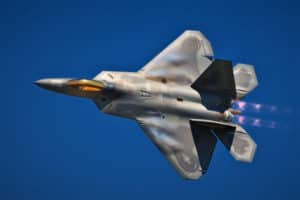So you’ve spent years soaring the skies, but now you’re looking for something a little more… terra firma. You’re not alone; many pilots eventually seek a change of altitude, swapping clouds for solid ground.
This post will provide real, actionable options for those in the pilot’s seat contemplating their next career move.
Quick Takeaways:
- Assess personal values and goals to understand the motivations behind seeking a career change—whether it’s lifestyle, industry stability, or new interests.
- Leverage pilot skills such as decision-making, leadership, communication, and stress management for roles in aviation safety, project management, simulator development, and emergency planning.
- Tap into resources like networking on LinkedIn, seeking mentors in the field, and engaging with career coaches to facilitate a successful transition into a new industry.
Is It Time for a Career Change?
There’s a point in every professional’s life when the winds of change start blowing. As a pilot, you might find these wings nudging you toward a new horizon for various reasons. Maybe you’re after a different lifestyle—one that allows more time with loved ones or fewer nights away from home. Perhaps the job market’s turbulence has you seeking clearer skies in a more stable industry. Or, it could be that your inner compass is simply pointing you in a new direction, fueled by personal growth and changing interests.
Understanding the why behind your desire to shift gears is pivotal. It’s about flying true to your values and goals. Ask yourself: Is it the schedule that’s grinding you down? Are there health considerations at play? Is the passion for flying flickering out? Whatever your reasons, laying them out on the runway will give you a clear path to taxi toward new opportunities that can make your heart soar just as much as flying once did.
What Skills Do Pilots Have That Are Transferable?
Pilots are a special breed. They’ve cultivated a set of skills that transcend the flight deck, and these very abilities can set them up for success elsewhere.
Decision-making: Pilots make split-second decisions at 35,000 feet. They’re trained problem solvers, adept at analyzing situations and choosing the best course of action with limited time.
Leadership: Commanding a crew and being responsible for passengers takes more than just knowing how to fly a plane. It requires the ability to lead, motivate, and maintain an authoritative presence.
Communication: Clear and concise communication is the lifeblood of safe aviation. Pilots are pros at relaying complex information to a diverse team, ensuring everyone is on the same page.
Grace under pressure: When the going gets tough, pilots keep a cool head. Stress management and maintaining composure in challenging situations are part of their DNA.
These are the cornerstones that not only keep a plane in the sky but also form a foundation for thriving in many other sectors.
Where Can a Pilot’s Expertise Take Them Outside the Cockpit?
With a vast array of transferable skills, pilots are well-equipped for a smooth landing in several alternative career fields. Let’s explore some destinations where their expertise is in high demand.
Aviation Safety Specialist: Who better to enhance protocols and training programs than someone who’s lived them? Your insider perspective is invaluable for identifying risks and improving safety standards.
Aerospace Project Management: Overseeing complex projects, coordinating with teams, and ensuring deadlines are met is second nature to pilots. This domain allows you to take your logistical prowess from the skies to the ground with a focus on innovation.
Flight Simulation Developer: Your hands-on experience could be the missing link in creating more realistic flight simulators. Assisting in the design and function of these tools not only capitalizes on your expertise, but also contributes profoundly to the training of future aviators.
It’s not just about the roles that are an obvious fit—think outside the aircraft. For instance, a role often unnoticed but tailor-made for pilots is that of an Emergency Response Planner. Cities and organizations greatly benefit from a pilot’s strategic thinking and scenario planning know-how, especially when it comes to developing comprehensive response plans for natural disasters or other crises.
Remember, your career’s trajectory isn’t confined to the airspace you’re used to cruising in. There’s a vast world out there, eager to benefit from the exceptional skillset that pilots bring to the table. Stay open to the possibilities, and you might just find yourself on an exciting new journey, no flight plan needed.
Can Pilots Find Success in Entrepreneurship?
When pilots hang up their uniforms, the sky’s the limit for their entrepreneurial ambitions. Well-versed in crisis management, cross-cultural communication, and quick decision-making, pilots are uniquely equipped to navigate the turbulent waters of starting a business. Whether it’s an aviation-related venture or an entirely new industry, their transferable skills give them a head start.
Taking off with a business idea demands much more than passion; it’s about strategic planning and understanding the market needs. Pilots could launch an aviation consulting firm, providing expertise on flight operations to budding airlines. Or, they might tap into the burgeoning drone industry, drawing on their air navigation skills to train new pilots or offer aerial photography services. But the cockpit isn’t where the inspiration stops; many pilots have founded successful businesses in travel, technology, and even brewing craft beers.
The trick is to identify a niche that you’re not just familiar with, but passionate about. Then do your homework. Market research is your co-pilot here – it’ll help validate your business idea before you’re wheels up. Remember, even if the business isn’t related to aviation, your ‘pilot’ brand could still be a unique selling point that sets you apart.
Who Can Help Pilots Transition to New Careers?
Flying solo can be daunting when charting a new career path, which is why having your own ‘ground crew’ is essential. Networking, mentorship, and career coaching are the tailwinds that can help pilots soar into a new professional stratosphere.
Networking: Start with Linkedin. Connect with old colleagues, classmates, and industry groups. Don’t shy away from reaching out to people in careers that pique your interest. Remember, the aviation world is tight-knit, and someone always knows someone who might lend a hand.
Mentors: A mentor who’s already made a similar transition can be golden. Their experience is like an aviator’s map – they’ve charted the course and can help you steer clear of potential obstacles. LinkedIn, alumni associations, or even professional pilot organizations can be fertile grounds for finding a mentor.
Career Coaches: Investing in a career coach could pay dividends. These professionals provide an objective perspective, help you highlight transferable skills, and can polish your resume to appeal to non-aviation industries. Websites like The Muse offer a plethora of coaches specializing in career transitions.
First steps? Attend industry webinars, sign up for newsletters related to your interests, and don’t hesitate to RSVP ‘yes’ to the next virtual networking event. Remember, job fairs aren’t just for new grads – they can be a goldmine for seasoned professionals like you!
How Can Pilots Prepare for a Smooth Landing in a New Field?
Transitioning to a new career might feel like switching from a 747 to a hang glider, but with the right preparation, you can ensure a smooth landing.
Education and Certifications: Depending on your new flight plan, additional education or certification might be essential. Research the credentials required in your desired field and consider online courses or night classes to get up to speed while still working.
Interview Preparation: You’ve navigated complex instruments; now it’s time to master the STAR interview technique (Situation, Task, Action, Result). Reflect on your flying experience in terms of leadership, teamwork, and problem-solving. Prepare stories that showcase these skills, tailoring them to your new industry.
Personal Branding: Update your LinkedIn profile with a sharp focus on transferable skills. Blogging about your transition can offer others a copilot’s view of your journey, establishing you as a thought leader and making you more visible to recruiters.
And here’s a tip that many don’t think about: Use simulator experience to your advantage. In interviews, highlight how sim time has prepared you for adapting to new technology – a must-have in many industries today.
By mapping out your new course and preparing for the journey, you ensure your career transition is as planned and controlled as a well-executed flight plan. Every pilot knows you can’t control the weather, but with the right prep, you can navigate through any storm.





